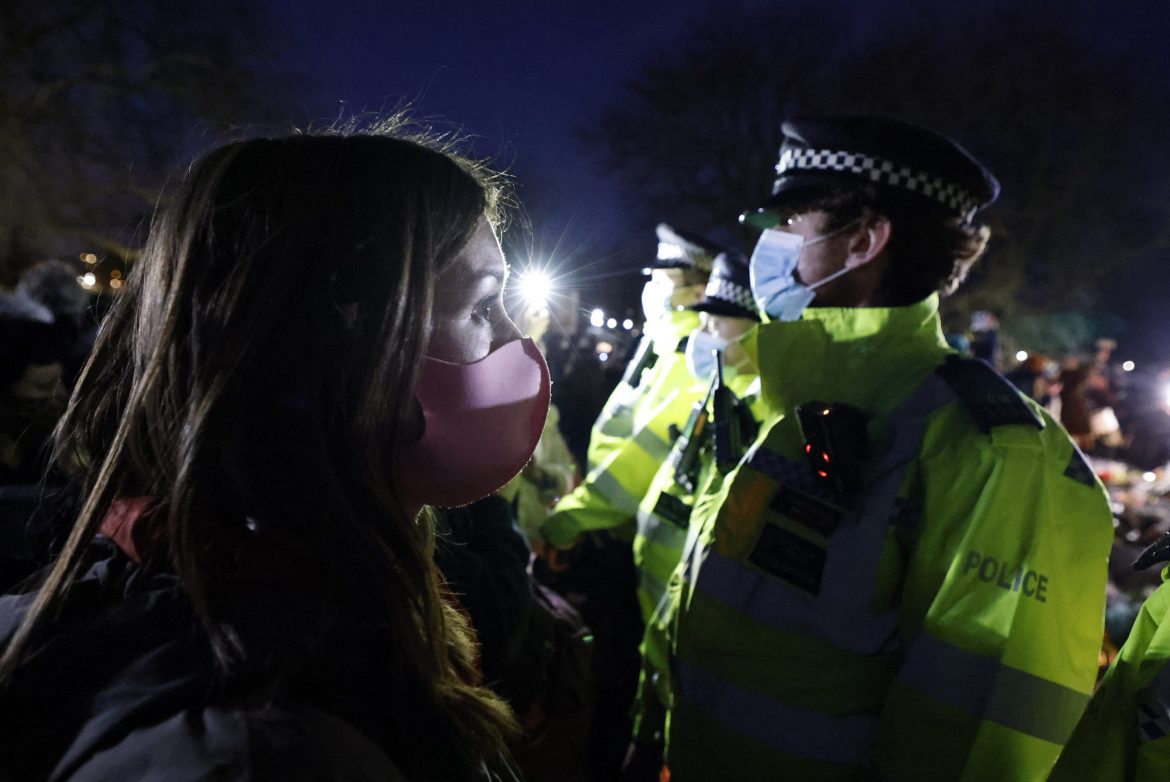You will have seen the headlines. Shocked or not, what happened on Saturday night is a reminder of the double standards that exist for women. They are more likely to die or experience violence at the hands of those meant to protect them.
Women and men gathered peacefully to mourn the death of 33-year-old Sarah Everard with a candlelight vigil but were met with violence based on a heavy-handed policing strategy.
Ironically, women were treated as if they came out looking for a fight. In fact, it was quite the opposite. If women still feel unsafe or are even killed just for being a woman, that outrage deserves breathing room. Even if that appears in the form of a silent, peaceful, candlelit vigil in the middle of a London park during a pandemic.
York native Everard was found dead in woodland in Ashford, Kent, 50 miles from her Brixton home after being reported missing on March 3. Legally, there is not much else to be said because it is a matter before the courts.
What we know is a serving Met police officer PC Wayne Couzens, 48, was charged at the Old Bailey last week with the kidnapping and the murder of Everard.
He is due to stand trial in October. Reports stated that Everard’s remains were found in a builder’s bag and she was identified through dental records.
Politically, the Met police had nothing to gain by enforcing coronavirus rules at the vigil which ended with four arrests. This was an opportunity to show grace. Instead, they chose to rub salt in the wound inflicted on traumatised women.
They chose rigidity at a moment that called for flexibility. Why should women be penalised for collectively grieving their womanhood, a piece of which was lost with Sarah Everard’s death? It was yet another example proving we are not safe nor allowed to publicly acknowledge the injustice of it.
Such an exceptional case of violence pressed down hard on the psyche of an exhausted population confined to their homes during a third nationwide lockdown.
For many women, Everard’s death brought home the worry that crosses the minds of most women when leaving their home – could I defend myself if I had to? This story is not unfamiliar.
This narrative eerily echoes a similar case 3,000 miles away, where Bermudian mother Chavelle Dillon-Burgess went missing on a 21 square mile island a few weeks into the government-mandated lockdown last April. Or what about Blessing Olusegun, who was reported missing and later found dead on Glyne Gap Beach in East Sussex? There are others.
Reclaim These Streets
The Saturday vigil for Sarah Everard, organised by Reclaim These Streets, was later cancelled because the Met Police rejected a permit for mourners to gather as it would contravene lockdown restrictions.
The crowd were calm and clothed with face masks – a symbol of selflessness, not rebellion. Even a casually dressed Duchess Kate Middleton came to pay her respects unmasked. A few hours later, the scene descended into chaos.
The videos circulated on social media were disturbing. What we saw was graphic scenes of women pushed, shoved, and dragged away in handcuffs like ragdolls. It appeared tone-deaf.
It seems like the authorities prejudged this vigil. They policed it like the crowd were a gang of insurrectionists storming the US congressional house.
Met Police commissioner Cressida Dick refused to take any responsibility for the unnecessary actions of police officers. She said: “Unlawful gatherings are unlawful gatherings. Officers have to take action if people are putting themselves massively at risk.” She has doubled down on her stance and refused to resign.
Several high-profile figures including London Mayor Sadiq Khan, opposition Labour leader Kier Starmer and Home Secretary Priti Patel criticised the heavy-handed approach and called for an independent review of the policing tactics.
It is worth explaining why it meant something for women to have a candlelight vigil. Most are hyperaware of the safety checks that rattle around in their heads before leaving their home.
I can recall, as a young girl, my parents, aunts, friends, teachers, coaches stressing the importance of being aware of dangerous men.
A startling one in three women globally will experience violence at some point in their lives, according to new data from the World Health Organisation. The pandemic has worsened the problem.
Police need to be seen as a source of reassurance and comfort for women fleeing distressing situations. Police officers need to held accountable for their actions on Saturday.
The Met Police need to be retrained on managing mass gatherings because these images have tarnished their reputation as a safe haven for abuse victims. Officers missed an opportunity to listen to the concerns of the attendees. Hear the stories, bridge a gap, build trust.
The Aftermath
Do not fault those people arrested on Saturday night for breaking Coronavirus restrictions. Better yet, address the lack of self-awareness demonstrated by the police officers who failed to see what was happening in front of their eyes.
In solidarity, women were saying “believe us”. These violent conditions in which women live under in societies, not just here in the UK but globally, are unjust. That voice was stamped out with more violence – the very violence being objected to.
The arrests enforce the belief that women are permitted to grieve only in a way acceptable by police authorities.
The timing of the arrests – just before the Conservative government has tabled the controversial Police, Crime, Sentencing and Courts Bill – was striking, given that the bill will further restrict the rights of people to feel heard.
The misjudged police response on Saturday shows exactly why authorities ought to be reducing restrictions to freedom of speech, not creating legal barriers.
There is still time for the Met Police to recover.
They can excuse the £258 fines issued to each of those four attendees on Saturday.
They can critically analyse the bureaucratic institutional chain of command that separates the decision-makers from the people they are meant to serve.
And then they can listen to women.






